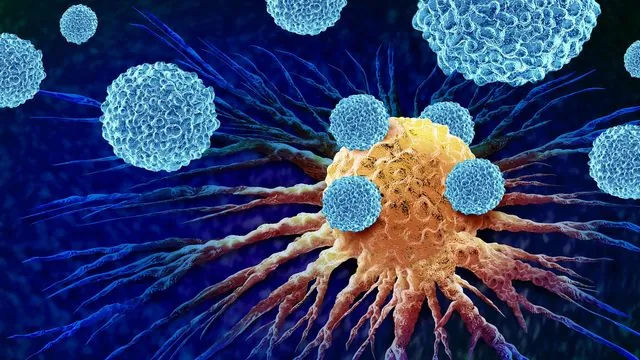
Breakthrough Research from Monash University Paves the Way for Enhanced Cancer Immunotherapy
2024-12-16
Author: Liam
A groundbreaking study led by Monash University is opening new pathways for cancer immunotherapy, a treatment that has already transformed the lives of countless patients by empowering the body’s immune system to combat malignant cells effectively.
Immunotherapy has emerged as a leading approach in the fight against cancer, capitalizing on our natural defenses. While the potential is immense, several molecular mechanisms inhibit T cells from effectively targeting tumors. Unlocking these inhibitory pathways could significantly elevate the performance of immunotherapeutic strategies.
In a landmark publication in Science Immunology, researchers have successfully unveiled the intricate structure of the inhibitory molecule LAG3 (Lymphocyte Activation Gene 3) and how it interacts with its primary ligand. This discovery introduces a novel approach aimed at enhancing the efficacy of immunotherapy for various cancer types.
This study stands as the first to present the crystal structure of the human LAG-3/HLA-II complex, a crucial step in developing therapies to block LAG-3's activity. Spearheaded by Professor Jamie Rossjohn at Monash University’s Biomedicine Discovery Institute (BDI) and in collaboration with Immutep, the research clarifies the way the human LAG-3 receptor binds to HLA-II molecules, a relationship that has previously been poorly understood.
Dr. Jan Petersen, the study's first author, stated, “While the interactions of PD-1 and CTLA-4 immune checkpoint molecules with their ligands have been elucidated for some time, understanding the interface between LAG-3 and HLA-II molecules was a challenging puzzle. The data collected at the Australian Synchrotron has now provided a key structural foundation for future antibody and small molecule therapeutics designed to inhibit LAG-3.”
Dr. Frédéric Triebel, Chief Scientific Officer at Immutep, emphasized the importance of these findings, highlighting how they contribute to a better understanding of the LAG-3 immune control mechanism. This research supports Immutep’s ongoing efforts to develop anti-LAG-3 therapeutic programs that could offer hope to patients battling cancers resistant to current treatments.
The implications of this study are vast, potentially ushering in a new era of immunotherapy that is more targeted and effective, giving patients access to better treatment options. As researchers continue to probe the depths of cancer biology, the future of personalized cancer care appears increasingly promising.
Stay tuned for more updates as this exciting research progresses and its translation to clinical practices unfolds!









 Brasil (PT)
Brasil (PT)
 Canada (EN)
Canada (EN)
 Chile (ES)
Chile (ES)
 España (ES)
España (ES)
 France (FR)
France (FR)
 Hong Kong (EN)
Hong Kong (EN)
 Italia (IT)
Italia (IT)
 日本 (JA)
日本 (JA)
 Magyarország (HU)
Magyarország (HU)
 Norge (NO)
Norge (NO)
 Polska (PL)
Polska (PL)
 Schweiz (DE)
Schweiz (DE)
 Singapore (EN)
Singapore (EN)
 Sverige (SV)
Sverige (SV)
 Suomi (FI)
Suomi (FI)
 Türkiye (TR)
Türkiye (TR)